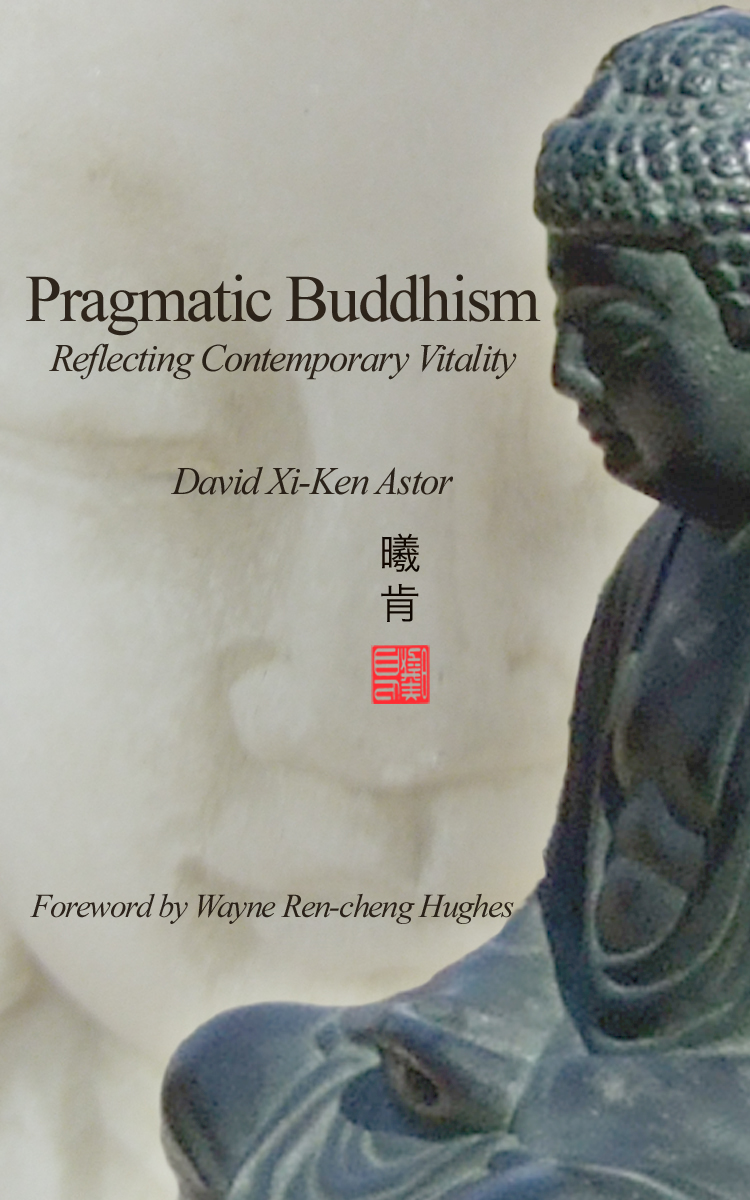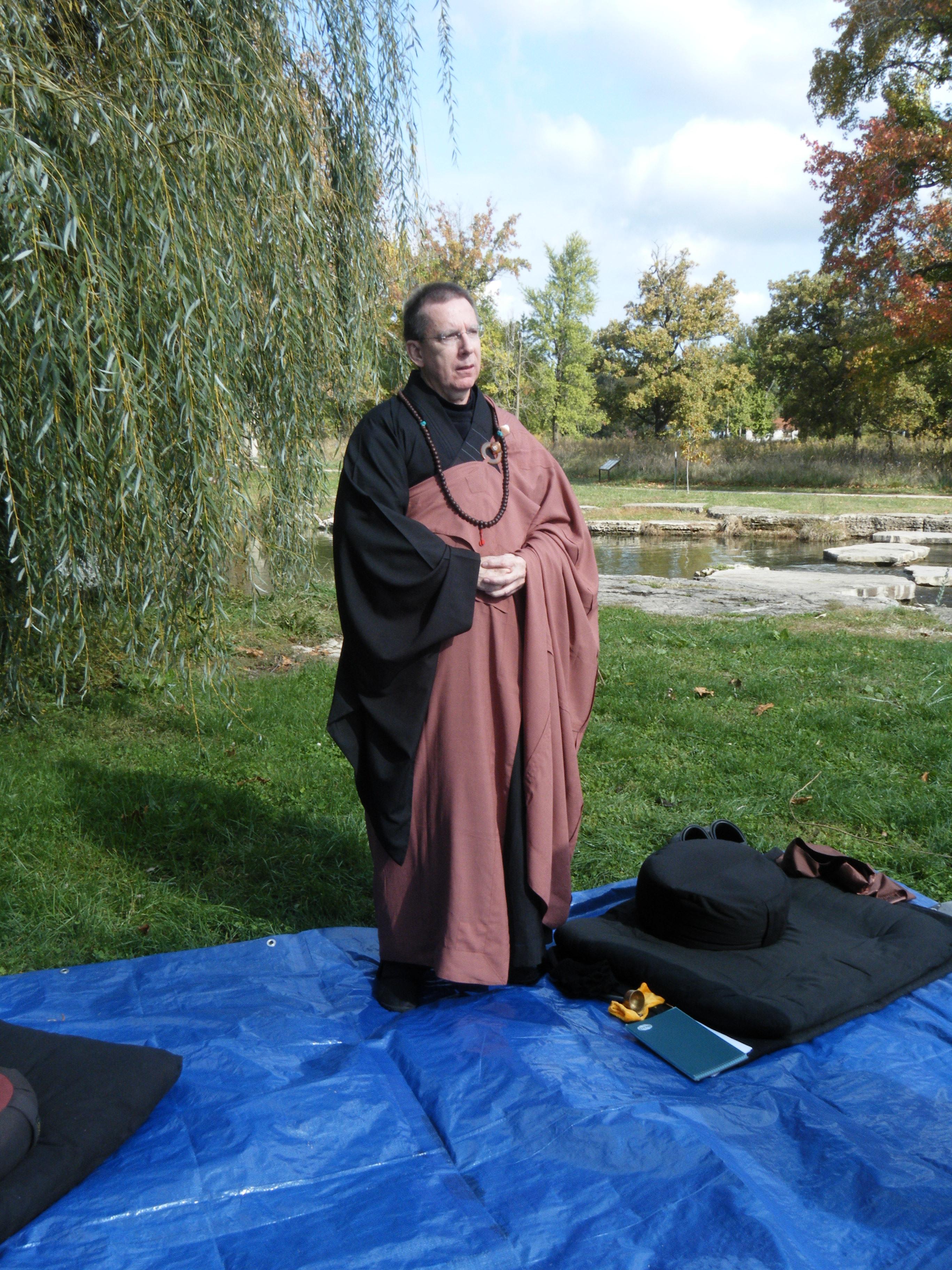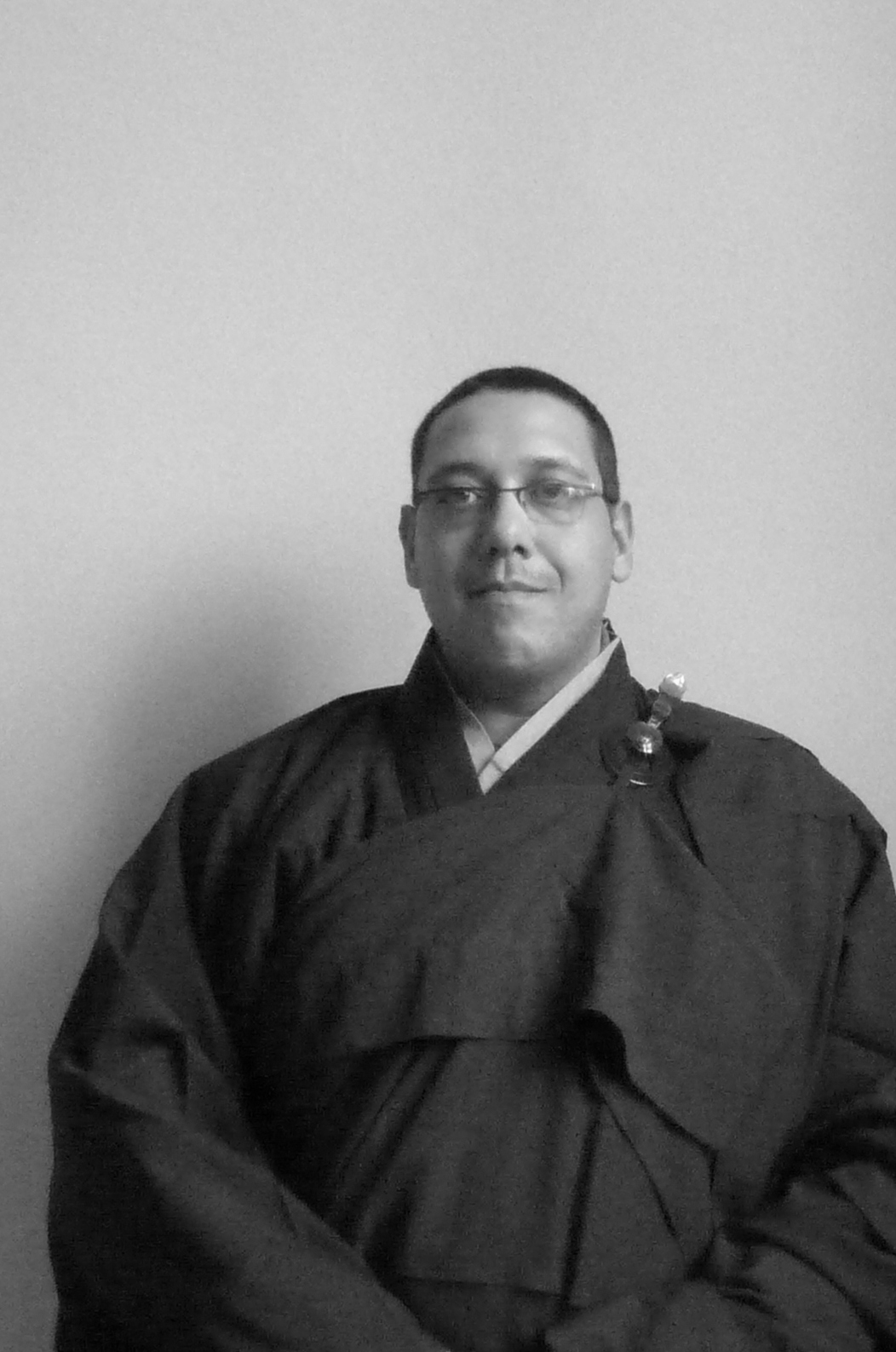This page is for the use of our Clerics and scholastic monks to engage various topics of interest as well as a practice teaching tool.
Discussion Topic 1 hosted by David Shen-Xi May 6, 2021
Buddhism pursues happiness by using knowledge and practice to achieve mental equanimity. In Buddhism, equanimity, or peace of mind, is achieved by detaching oneself from the cycle of craving that produces suffering and unsatisfactoriness. What do we mean by “detaching oneself”. Can the pursuit of happiness cause suffering if it is considered a good thing as one of the goals of a dedicated practice?



















































































Happy Friday David,
Just found this and am surprised to be the first to comment. In answer to your question: The pursuit of any phenomena can be a cause of suffering.
“Buddhism pursues happiness by using knowledge and practice to achieve mental equanimity. ” Is it happiness that we seek to cultivate or would a wiser choice be contentment? Happiness is an emotional phenomena that is difficult to attain and maintain in the midst of an unwholesome situation. Contentment is a mind mediated acceptance of the reality of a situation and how, wholesome or unwholesome, it will pass; and that one has the tools necessary to make good choices.
I bow,
Wayne
Excellent points. I totally agree on your distinction between happiness and contentment. In working toward a practice devoted to human flourishing it is important in developing a state of “Calm abiding” which reflects getting to the point of wisdom beyond wisdom (prajnaparamita). I’m glad you are showing us the importance of how to exchange the language in order to show that happiness can be a fleeting human emotion while a state of contentment can be a more stable mind-state. However, we should never be contented in a situation that can be changed for the better if it is within our ability to do so. Sometimes this is almost impossible given the realities of our contingent world. The question is, is their a state of mind other then contentment in dealing with prolonged suffering? Is there a difference between personal suffering opposed to the suffering of others when we use the word “contentment”?
🙏🏼 Shen-Xi
Gary M. Long 5-9-2021
Thank you, Sensei, for the opportunity to be a part of this discussion group.
Our Buddhist practice uses knowledge and meditation to help us become more mindful of ourselves with respect to our mental equanimity. As we become more aware of our own “cycle of our craving” this awareness should be used as a constant reminder to drive us further in our pursuit of mental equanimity or peace of mind. This is easier said than done since our craving represents attachments to our filters/delusions stemming from our ignorance. So how do we “detach oneself” from the very essence of our own ignorance? We need to take a concerted effort to focus on the suffering and unsatisfactoriness in our lives and reach a point in our practice where we can apply this knowledge of awareness as a generous gift to ourselves. Only after we reach this difficult level of self-awareness can we maintain contentment in the midst of all unwholesome situations. This mental contentment takes the form of compassion within us and expands outward to all sentient beings through the actions of our daily lives.
Gary, you have obviously given thought to this topic. You demonstrate how your lessons on these topics have advanced by using by example the OEB Meditation Model and the Six Perfections in order to help express your thoughts. Two points: first, your use of the word “contentment” suggests a degree of satisfaction in the midst of unwholesome situations. Perhaps you were thinking how we must develop a state of body-mind state of calm during adversity. And second, consider your use of compassion against the Six Perfections of how GENEROSITY and TOLERANCE is the path to compassion. In my view generosity and tolerance are actions that can be demonstrations of compassion. But I do understand how your intentions in your sharing these thoughts are still clear to me and I don’t want to let words get in the way. Good job. Your off and running.
🙏🏼 Shen-Xi
Most modern views of happiness are practical and not philosophical, often focusing on what means methods might be good for Johnny or good for Sally. The concern is not on what happiness is, as much as how do we achieve it. We tend view happiness in the dual as the opposite of sadness, depression or suffering. So how do we “achieve” happiness? One common answer peoples give is to spend their lives doing things that bring pleasure and enjoyment. That sounds like a nice life right? But Buddhism teaches us that maybe that’s not quite the right direction. Buddhism teaches that every life from the rich to the downtrodden has suffering, pain, unsatisfactoriness. We experience the pain and suffering of physical ailments, loss, disappointments, and the list could go on and on. The First Noble Truth is the truth of suffering. So how does that lead to happiness? Well what if suffering is necessary, or even in some cases desirable? Should we cut ourselves off from loved ones due to the pain felt from death? Should women not have children due to the physical suffering that accompanies childbirth? Maybe instead of “happiness” a better word would be flourishing. We can flourish at many pursuits & experiences in life that often accompany some level of suffering and still have a positive outcome.
The Sweetness and Stickiness of Happiness
garymlongartist 5-18-2021
Thank you Sensei Shin-Jin for your teaching on happiness. It provoked me into realizing the deeper meaning of the first Noble Truth of Suffering. The realization of this truth is a fundamental necessity of our existences. Within it lies the key to unlock our perpetual state of suffering. Our suffering may be desirable because only within this condition can the freedom of human flourishing be realized to its fullest extent and create positive outcomes. Deep Bows /\
The Sweetness and Stickiness of Happiness
Happiness is overly sweet and sticky because it exists within a level of awareness which might be considered belonging to our basic needs as human beings. As we look more closely at our desires for happiness, we may begin to recognize that our basic instinct to achieve happiness runs counterintuitive to another basic need we have to connect to others in the world through sharing and social interaction. The friction that this counterintuitive tension naturally creates may drive us to contemplate a deeper awareness other than our own self-centered happiness.
What is there other than our own self-centered happiness when we have an opposing need to connect to everyone and everything in the world? This is where the concept of human flourishing begins to offer us a shared communal alternative to our self-centered tendencies. From a Buddhist perspective this becomes a space outside of our dualistic thinking where we find a deeper context to the meaning of happiness.
On the surface our emotional cravings of happiness are fleeting and carry no real value for human flourishing apart from the extent of our own self-interest. Human flourishing on the other hand takes the self-attachment out of the picture and moves us into a deeper space of greater awareness for everyone.
So, happiness is very sticky and sweet like candy. As with all cravings soon disappears leaving us with the desire for more.
What an interesting use of your metaphor for happiness, Gary. Your awareness that happiness has both an individual as well as multi-dimensional reality expands to demonstrate that our human nature is also interdependent and interconnected that moves beyond it’s dual nature. Happiness is a human emotion with universal impact when we harness the energy from acting in moments of generosity and tolerance. 🙏🏼
Shen-Xi
Shen-Xi Sensei
May 24, 2021
When we begin to explore Buddhism as a practice we are introduced to how the Four Noble Truths can guide us along the way that promotes human flourishing. We engage what are the reasons for our unsatisfactoriness (suffering) and the causes that promote it. Then we learn how to move beyond our personal challenges by walking the Eightfold Path. This path is the beginning foundation for Buddhist moral principles. Human flourishing is about our good Health, living in Harmony and our Happiness: the 3 H’s. So when we focus on what makes us happy we are really considering how to walk the moral path. We also know that what makes us happy also facilitates the happiness of those we love and care for.
As we advance in our practice many of us have studied “The Six Perfections” which is about Buddhism and the cultivation of character. The first three are generosity, morality and tolerance. We learn that generosity supported by good moral behavior and the practice of tolerance is how be may show compassion. Compassionate action often results in moments of happiness for ourselves and those we are engaged with.
It is easy to consider happiness, therefore, in individual terms. We might even add to our flourishing-goal-list how to sustain being happy. However, the Four Noble Truths and The Six Perfections viewed from a broader perspective is also about the promotion of the common good and social justice when we take the “I’ from the narrative and add “them/other” which moves the discussion of happiness from the moral to the ethical (morality for self and society) side of human thought.
There seems to be no question that men want happiness. The philosopher, Pascal, thinks, “Man wishes to be happy, and only wishes to be happy, and cannot wish not to be so.” Some questions should be ask then about happiness. Should men make happiness their goal and direct their acts accordingly? Kant states, “…the principle of private happiness is the direct opposite of the principle of morality.” He goes on to suggest that happiness is a pragmatic rule of life which aims at happiness and tells us what we have to do if we wish to become possessed of happiness.
How we consider these thoughts is interpreted for each individual in their own way. Hence there can be no universal solution in terms of desire of the problem of how to be happy. The problem is there can be no universal solution in terms of desire of how to be happy and reduce moral philosophy to a theory of happiness which must result in giving up the search for ethical principles which are both universal and a social priority. We might consider the motive is not simply to be happy, but rather to be worthy of happiness, or that which dictates how we ought to act in order to deserve happiness. As we study the Eightfold Path this notion of how to promote happiness for ourselves is also tied to the effects it has that results in our actions that expands its effects for the common good. This is articulated in the Three Pure Precepts: Do no harm, Do only good, Do good for others. This core precept encompasses both the individual moral character as well as the ethical foundation for human flourishing of society if our culture has woven within it’s very structure all the elements that brings happiness, harmony and health in focus by way of the various structures that govern a civilized society.
We might want to consider how Buddhist thought makes a distinction between being happy at a given moment and being happy for a lifetime. We practice to promote our own lifetime-flourishing that is living happily. No matter how we which to consider the pursuits of happiness, there is the connotation of satisfaction and contentment when we live by the guiding reality of the Three Pure Precepts. When considering this discussion topic, it might be helpful to weigh the question if the pursuit of happiness can cause suffering against how the answer might be filtered through The Three Pure Precepts.
Our Tightrope Act
Jiang Tzai garymlongartist
Our Tightrope Act
Our Buddhist moral principles might be viewed as a tightrope act between the guiding reality of the Three Pure Precepts and our own life-time flourishing of good Health, living in Harmony and our Happiness the 3 H’s. The tightrope that we all walk becomes the delicate balancing act involved between these three H’s. We are constantly adjusting our footing on the wire using corrective actions in the context of the Six Perfections. Our moral character is measured by the height at which our rope is suspended above the constructs of our social mores. Some of us must reach for the stars to feel more engaged with life while others are more comfortable walking at a safer lower altitude.
Whatever our personality is, we must all walk this tightrope. We walk the balancing act of life using the balancing pole as our moral conscience to help navigate us across to the other shore. Each of our heartbeats drives us forward to our eventual end which we all must face sooner or later. It is up to us to decide how high our rope is and whether we choose to have a safety net below us for comfort. The height of our wire has enormous consequences reflected in the amount of suffering we are taking on in our lives. The causal chain of events or cause and effect relationships within our lives creates all momentary conditions, happy or sad, moral, or immoral. We balance each one constantly. For some folks, the price becomes overbearing, and the suffering forces us to lower our standards and accept perhaps filters or delusive thinking to temper the pain. However, there are others who might feel more comfortable at greater heights. These folks hold themselves more accountable to greater truths and moral standards because they have discovered a space which affords them the ultimate freedom of universal happiness beyond their personal lives. On this tightrope the extraordinary walk.
This is an interesting way of understanding the realities of what it means to be human. Your use of language we use to express Buddhist thought that reflects our OEB lineage is good. 🙏🏼
Shen-Xi
We seek to “detach ourselves” craving and suffering (craving being the cause of suffering, as revealed in the 2nd Noble Truth) by following the Noble Eightfold Path (the way out of suffering, as revealed by the 3rd and 4th Noble Truths).
The pursuit of happiness can cause suffering if we become attached to our desire for happiness. This, like all attachments, ultimately results in dissatisfaction and suffering.
/\
Thank you, Jiang-Yi, for your thoughts on this subject. It is an excellent lesson for us on the importance of how it is sometimes necessary to rub more firmly when we are working to polish the mirror of our practice. 🙏🏼
Shen-Xi Sensei
is the concept/practice/habit of compassion the last hinderance to total liberation?